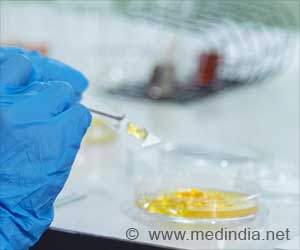Researchers at the University of Illinois at Chicago in collaboration with their colleagues from two other institutions have found the structure of an enzyme in the virus that causes SARS, severe acute respiratory syndrome. The researchers, who have detailed these findings in the March 27 issue of the Proceedings of the National Academy of Sciences, hope that this could form a new drug target for drug makers.
"By unlocking the three-dimensional structure of this enzyme -- known as papain-like-protease (PLpro) -- we now have a molecular road map to design new drugs that could potentially treat SARS-infected patients, or perhaps patients suffering from other SARS-related illnesses such as the common cold, bronchitis or pneumonia," commented Andrew Mesecar, associate professor of pharmaceutical biotechnology in the UIC College of Pharmacy. "We are attempting to use the same approach that has been accomplished in designing effective drugs against HIV protease, which has led to the development of new drugs to fight the AIDS virus." SARS caused havoc in 2003 when it was first reported from Asia. Within a short span of time, the disease had sp[read to 29 countries in North and South America, Europe and Asia before it was finally controlled. It begins as fever, headache and body aches and severe cases develop diarrhea and pneumonia. In the 2003 outbreak, 774 people succumbed to the disease, which was diagnosed in 8,098 people worldwide, according to the World Health Organization. Mesecar said that the papain-like-protease enzyme forms the crux which is vital for trhe replication of the virus. Stooping this enzyme could inhibit the disease, he said. Contact: Sam Hostettler [email protected] 312-355-2522 University of Illinois at Chicago Source: EurekalertUC Researchers Find Potential Drug Target For SARS
Recommended Readings
Advertisement







